Good morning, It’s Monday, April 7th. In today’s news, Trump kills globalism and reshapes the world’s economy, the Liberals and Conservatives are dropping candidates deemed liabilities, Toronto’s role in the global fentanyl trade, the Liberals, NDP, and Conservatives outline new policy proposals, and much more.
First time reading the daily blend? Sign up here.
Trump Kills Globalism: Why the 2020s Will Reshape the World Forever
The 2020s will go down as one of the most pivotal decades in human history—a time when the world changed course and a new era began.
It will be remembered as the moment the modern world pivoted—when old systems broke apart and new structures began to take shape. These are the kinds of moments that redefine entire eras. Think of the signing of the Magna Carta in 1215, when, for the first time, a king’s power was legally limited. Or the fall of Constantinople in 1453, which marked the true end of the Roman Empire and shifted global power toward Western Europe. The discovery of the Americas, the global chaos of the two World Wars, and the fall of the Berlin Wall in 1989—all were moments where the world changed direction.
Now, in the 2020s, we are living through another such moment. And while that may sound intimidating, it shouldn’t fill us with dread. Humans are survivors by nature. Our greatest strength is our ability to adapt, endure, and rebuild—no matter the challenge.
This week, UK Prime Minister Keir Starmer will publicly declare what many already suspected: globalization is over. He’ll admit that it has failed the public. The immediate trigger? A bold and sweeping move by U.S. President Donald Trump, who announced global trade tariffs—10% on UK goods, and even higher on others. Starmer will argue that this "shock" means Britain must now “move further and faster” to cut red tape and rebuild its domestic economy. In his own words: “The world as we knew it has gone.” He’s right.
The global order that has defined the last 30 years is unraveling—and the 2024 U.S. election was the moment the world chose what to salvage from its collapse. Humanity faced a three-way crossroads: globalization, national sovereignty, and democracy. But only two could survive. By electing Trump, voters chose to bury globalism in order to preserve sovereign nations and democratic governance.
Trump’s tariffs are not just about economics. They’re a weapon of leverage. A way to force the world to abandon globalism and return power to individual nations. Had Kamala Harris won the election, the choice would’ve looked very different. Globalization would’ve stayed. Sovereignty would’ve been sacrificed. The world would’ve moved toward a future where your nation’s laws and borders mattered less, and where “democracy” was preserved in name, but not in function.
That’s what Canadian Prime Minister Justin Trudeau meant when he told the New York Times in 2015—just after his election—that “Canada is the world’s first post-national state.” He wasn’t predicting the future. He was describing the plan.
Post-nationalism is the idea that power should move away from individual countries and into the hands of large, unelected institutions. It means letting global organizations like the United Nations, the European Union, NATO, or the World Economic Forum steer domestic policy. It means using multinational corporations and global media to shape public opinion across borders. It means turning mass migration into a political tool to erode national identity and reshape culture. And it’s been underway for decades.
The World Economic Forum—one of the leading voices behind this shift—openly shared its eight predictions for the world by 2030. A few of them:
“You’ll own nothing and be happy.”
“The U.S. will no longer be the world’s leading superpower.”
“A billion people will be displaced by climate change—we’ll need to welcome and integrate them.”
“Fossil fuels will be history.”
“Western values will be tested to the breaking point.”
This is not accidental. It’s coordinated. The United Nations and the World Economic Forum signed a strategic partnership to deliver Agenda 2030, a global framework that envisions a one-world, socialist-style system—with China’s model quietly serving as the blueprint.
In 2016, Trudeau traveled to China and told the Canada-China Business Council that “the success of the world is inexorably linked to China’s success.” UK Prime Minister Keir Starmer, for his part, is a long-time member of the Fabian Society, an organization formed in 1884 to bring about global socialism gradually, through reform instead of revolution. And Kamala Harris? Her father was a Marxist economist.
The Cold War may have ended, but the ideological war never did. It just evolved. China picked up the mantle the Soviet Union dropped, and its model of authoritarian socialism found quiet allies in Western institutions.
We’re even witnessing a modern version of Mao’s Cultural Revolution, launched in 1966 to destroy traditional Chinese values. Mao’s “Four Olds”—old ideas, old customs, old culture, and old habits—were targeted by radical youth groups known as the Red Guards. Today, Western societies are going through a similar transformation. But instead of Red Guards, we have social justice warriors. The effect is the same: dismantle national identity in the name of socialist progress.
This is why Trump is so fiercely hated by global elites. He’s not just a politician. He’s an obstacle. A roadblock standing in the way of a decades-long plan to dissolve national sovereignty and usher in a one-world order.
Keir Starmer was right: “The world as we knew it has gone.” The question now is: what comes next?
We're returning to something ancient: spheres of influence. For most of human history, the world was not “globalized.” It was regional. And that’s where we’re heading again.
The Americas will be led by the United States, which is why Trump is focusing so heavily on Canada, Greenland, and the Panama Canal.
China will lead Asia—unless India can stop them.
Russia will reassert control over Eastern Europe—hence its push into Ukraine.
Germany, France, and the UK will compete for Western Europe’s leadership.
In the Middle East, Iran, Israel, Turkey, and Saudi Arabia will all vie for dominance.
Africa, as usual, will be economically exploited by whichever outside powers move in fastest.
This isn’t good or bad—it just is. And it’s already happening.
This very morning, China’s stock market crashed, with the Hang Seng Index dropping over 10%. That’s the worst single-day drop since the pandemic. Wall Street hasn’t opened yet but based on the signals, it’s going to be a brutal day. Western markets are preparing for fallout, and fears of a global recession are rising fast.
There’s a saying worth remembering:
“Hard times create strong men. Strong men create good times. Good times create weak men. Weak men create hard times.”
Well, weak men have already created the hard times. And while we can’t avoid the storm, we can decide how we meet it.
Federal Parties Cutting Loose the Liabilities—While Plotting Post-Deadline Bombshells
In the final week before the April 7th registration deadline for federal election candidates, both the Conservatives and Liberals were forced to drop multiple candidates over controversial past remarks, raising tensions and turning attention to party vetting processes. The Conservatives dropped five candidates, including Mark McKenzie, who joked during a podcast that Justin Trudeau should face the death penalty, and Simon Payette, who mocked a female Liberal candidate and École Polytechnique massacre survivor for using her “cause to evoke pity.” Others included Stefan Marquis, removed over undisclosed social media comments; Lourence Singh, who once praised China’s governance and defended its Uyghur education camps; and Don Patel, who endorsed a social media comment implying certain individuals should be deported to India to be “taken care of.”
The Liberals, meanwhile, saw three candidates ousted. Paul Chiang, a sitting MP, resigned after suggesting his Hong Kong activist rival be handed over to Chinese officials for a bounty—an incident now under RCMP investigation. Thomas Keeper was dropped over a previously undisclosed domestic assault charge from 2005, and Rod Loyola was removed following resurfaced 2009 comments defending Hezbollah and Hamas.
Because no candidate replacements can be registered after April 7th, parties are now forced to either stick with potentially problematic candidates or abandon those ridings entirely. Some political insiders believe opposition parties are sitting on damaging material, waiting to release it post-deadline when rivals can no longer replace candidates, thereby maximizing political fallout.
Several Conservative candidates remain under scrutiny. Andrew Lawton, a former journalist and convoy author, has been criticized for participating in a group chat with prominent convoy figures—though the party maintains he was communicating as a journalist. Documentary filmmaker Aaron Gunn is also facing renewed criticism for past comments on Indigenous issues, particularly his refusal to label Canada as genocidal. Despite calls from NDP Leader Jagmeet Singh and some First Nations leaders for Gunn to be dropped, Conservative Leader Pierre Poilievre is standing by him, calling the accusations “misinformation.” Poilievre also defended Bryan Paterson, the candidate in Kingston and the Islands, after questions resurfaced about his past ties to a church that supported conversion therapy. Poilievre pointed out that Paterson had long ago renounced such views.
The wave of dismissals and scrutiny reveals a broader strategy at play—where opposition parties may be timing attacks for maximum damage, turning old comments into modern campaign landmines.
Toronto's Dirty Secret: How Canada Became a Command Hub for China’s Fentanyl Empire
It’s not the Mexican cartels or shadowy figures in Shanghai you should be worried about. It’s TD Bank. It’s Toronto. It’s a network so vast and embedded that the Chinese Communist Party (CCP) is now being named at the top of a global fentanyl empire—one that Canada helps run.
According to a senior U.S. government expert involved in transnational crime investigations, Canada isn’t some passive bystander in the North American opioid crisis—it’s an operational headquarters. Toronto and TD Bank sit at the heart of a laundering and logistics network moving synthetic opioids by the ton and washing billions in blood-soaked cash. The chemical precursors come from China, backed by CCP officials holding “golden shares” in export companies, and end up on American streets through a maze of Triad-cartel partnerships and Chinese students moving duffel bags of cartel money into Canadian and U.S. bank branches.
TD Bank, the expert says, was a critical artery. Why? Because of its “deep integration with Chinese community networks” in Toronto and New York. Millions in fentanyl profits were dropped off in cash, sometimes by 21-year-old international students on student visas. These transactions didn’t raise red flags—because they looked “culturally normal.” The banks turned a blind eye, and the system kept running.
Even more disturbing, the Chinese state isn’t just aware of this—it's allegedly managing parts of it. From chemical plants to prison-based production, from Triads to cover companies buying real estate, salons, and startups, the entire fentanyl economy has been industrialized and globalized under CCP oversight. The U.S. is now openly considering designating the CCP as a transnational criminal drug trafficking organization.
So while our government pretends fentanyl is just a “U.S. problem,” the reality is that Canada is a crucial player in one of the most lethal supply chains on Earth. And not only are we failing to stop it—we’ve built the perfect financial infrastructure to keep it going.
If Canada’s political class had any courage, they’d launch a national inquiry today into TD Bank, Chinese organized crime, and the role of Beijing in flooding North America with poison. But courage is in short supply. And fentanyl, sadly, is not. Source.
Liberals Promise Skilled Trades Support, Tories Vow to Cut Red Tape, NDP Promises More Doctors
On Day 14 of the federal election campaign, party leaders rolled out new promises targeting jobs, health care, and red tape.
Liberal Leader Mark Carney, speaking in Toronto, promised up to $8,000 in grants for trades apprentices and pledged to double funding for the Union Training and Innovation Program. He also vowed to remove federal mobility barriers to create “one Canadian economy” and allow more travel expenses for workers, echoing a similar Conservative proposal.
Conservative Leader Pierre Poilievre, campaigning in Osoyoos, BC, promised to slash 25% of Ottawa’s red tape within two years, cut administrative costs, and legally enforce the reductions through the auditor general. He called the plan “economic rocket fuel,” designed to make Canada more competitive and self-reliant.
Meanwhile, NDP Leader Jagmeet Singh promised that every Canadian would have access to a family doctor by 2030. His plan includes 1,000 new medical residency spots, more rural training programs, and increased federal health transfers to the provinces. More
White House Official Says More Than 50 Countries Reached Out to Talk Tariffs
According to White House economic adviser Kevin Hassett, more than 50 countries have reached out to the Trump administration to negotiate new trade terms following sweeping tariffs announced earlier this month. The tariffs—a minimum of 10% on nearly all trading partners and higher rates on 60 nations—take effect April 9th. Countries like Vietnam, Taiwan, and Thailand have already signalled willingness to cut tariffs or boost US investments to avoid the new levies.
Canada and Mexico are exempt, having already been hit with 25% tariffs tied to immigration and fentanyl concerns. Despite a sharp market selloff following the announcement, Hassett claimed the tariffs are spurring job growth, especially in the auto sector, downplaying concerns over rising consumer costs and a recession. More
Conservative Leader Pierre Poilievre Announced That He Will Fund Centre-Based Addiction Care for 50,000 Canadians if He Becomes Prime Minister - More
Pam Bondi Receives Death Threats for Seeking the Death Penalty Against Luigi Mangione—The UnitedHealthcare CEO Killer - More
India and the UAE to Develop Sri Lanka Energy Hub as Delhi Competes with China for Influence - More
Trump Administration Bars All South Sudanese Citizens From Entering or Staying in US Over Failure to Repatriate Citizens - More
Marine Le Pen Vows to Fight ‘Political Witch Hunt’ Ruling, as France’s Main Parties Stage Rival Rallies - More
Parliament Hill Lockdown Ends After Police Arrest Man Who Barricaded Himself Inside East Block - More
Carney Accused of Helping Brookfield Avoid $5.3 Billion in Canadian Taxes
Liberal Leader Mark Carney is under fire for allegedly helping Brookfield Asset Management dodge an estimated $5.3 billion in Canadian taxes between 2021 and 2024, during his tenure as chair, by funnelling profits through offshore tax havens like Bermuda to slash the company’s tax burden. According to the report from the NDP, Brookfield pulled in over $23.3 billion USD in income during that period but paid just $2 billion in taxes.
Based on Canada’s corporate tax rate, they should’ve paid $6.1 billion USD, leaving a massive $4.1 billion USD gap (converted to $5.3 billion CAD)—a shortfall ultimately covered by everyday Canadian taxpayers. CBC confirmed two Brookfield funds overseen by Carney were registered in Bermuda. When pressed, Carney downplayed the issue, saying he’s no longer with the company. Critics, including Pierre Poilievre and Jagmeet Singh, accuse him of tax avoidance while everyday Canadians face higher taxes. More
StatsCan: Canada Sees Worst Job Losses Since COVID - Canada lost 33,000 jobs overall in March due to a steep drop in the number of full-time jobs. More
Trump's China Tariffs Reportedly Tanked the TikTok Deal—Now Another TikTok Ban is Looming - More
Dow Futures Tumble Another 1,500 Points as the Massive Market Sell-off Continues - More
Next Stop: The Moon—Humanity’s Leap Toward Lunar Colonization
New findings from ISRO’s Chandrayaan-3 mission have brought exciting news about the Moon's potential for human habitation. Data from the mission reveals the presence of water ice just beneath the lunar surface in the Moon’s polar regions, particularly at the south pole. This discovery is a game-changer for lunar exploration, as water ice could be used for drinking, oxygen production, and even rocket fuel, drastically reducing the need for supplies from Earth.
This breakthrough is especially significant for NASA's Artemis program, which aims to return astronauts to the Moon and establish a sustainable presence by the 2030s. If the water ice can be accessed, it could provide vital resources, allowing astronauts to live off the land and significantly reduce the cost and complexity of missions. With the potential for self-sustained lunar exploration, the Moon is one step closer to becoming humanity's next frontier. More
Scientists Just Found 3.7 Billion-Year-Old Organic Chains on Mars That May Point to Life - More
Older Than Stonehenge? Groundbreaking Discovery at “Unusual” Ancient Burial Site Rewrites Neolithic History - More
Ovechkin Breaks Gretzky’s All-Time Goal Scoring Record
Alex Ovechkin made NHL history by scoring his 895th goal, surpassing Wayne Gretzky’s long-standing record to become the league’s all-time leading goal scorer. The goal came during a 4-1 loss to the New York Islanders on Sunday, with Ovechkin’s signature wrist shot from his power-play spot in the left circle.
Ovechkin’s achievement is a testament to his extraordinary career, which has spanned 20 seasons, all with the Washington Capitals. Despite a season marred by injury, he has maintained his high level of play, recently scoring in five consecutive games. The milestone goal was celebrated with a 15-minute ceremony, featuring tributes from NHL Commissioner Gary Bettman and Gretzky himself, who passed the torch to Ovechkin. The moment was made even more poignant by the fact that it coincided with the 21st anniversary of the Capitals’ selection of Ovechkin in the 2004 NHL Draft. More
Men's NCAA Championship Set: Florida vs Houston - We're still processing how the Houston Cougars and Florida Gators rallied second-half comebacks to beat Duke and Auburn, respectively, in the men's Final Four on Saturday night. More
UConn Rolls Past South Carolina to Win Record 12th Women's Basketball National Title - More
Shohei Ohtani Throws Bullpen Session Before Saturday's Game as Dodgers Continue to Plan His Pitching Return - More
‘Tree Police’: Quebec Town Charges $200 Fee for Homeowners With Treeless Yards
Sea Lions Are Attacking People in the Waters Off California’s Coast - The cause is less demonic and more likely domoic acid toxicosis caused by toxic algal bloom, often referred to as red tide, experts say.
On This Day in 1968, riots erupted in over 100+ US cities after the assassination of Martin Luther King Jr.






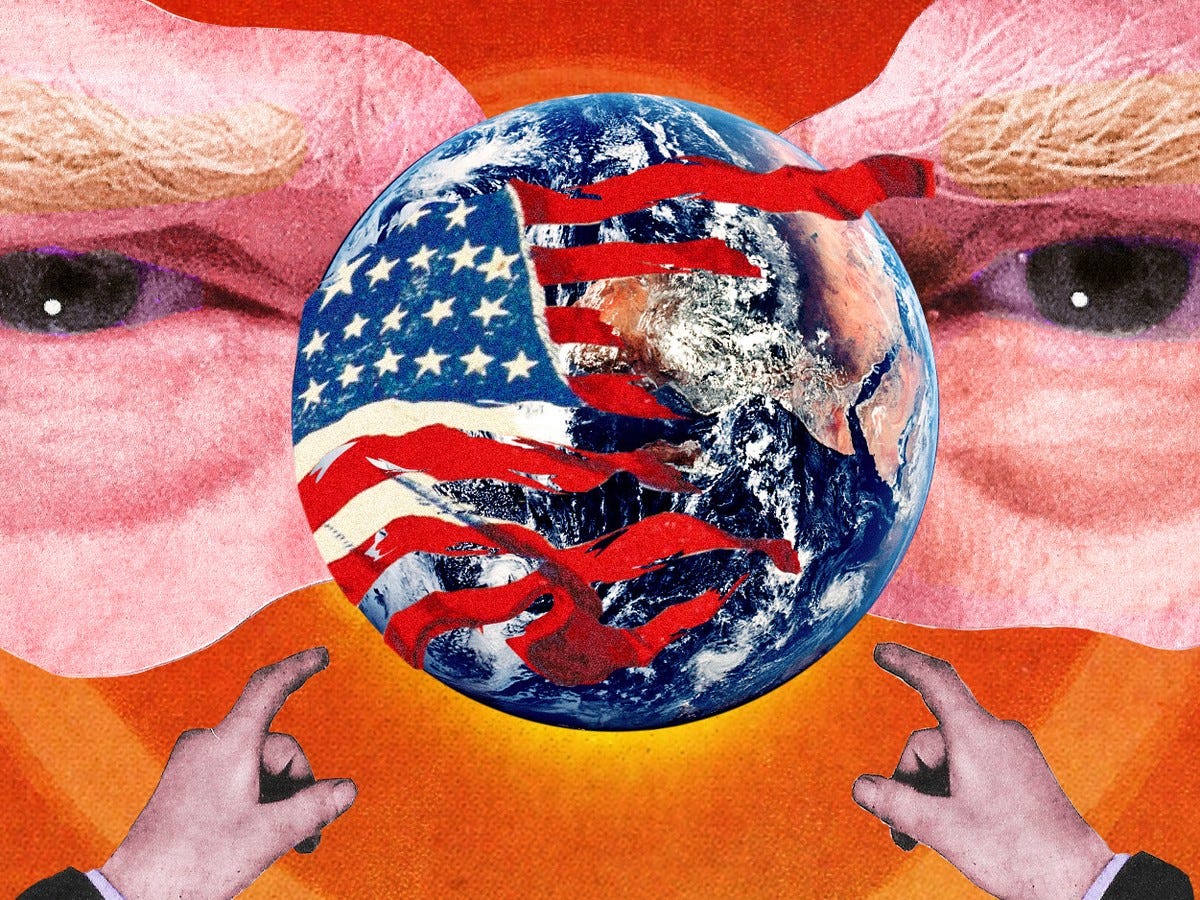
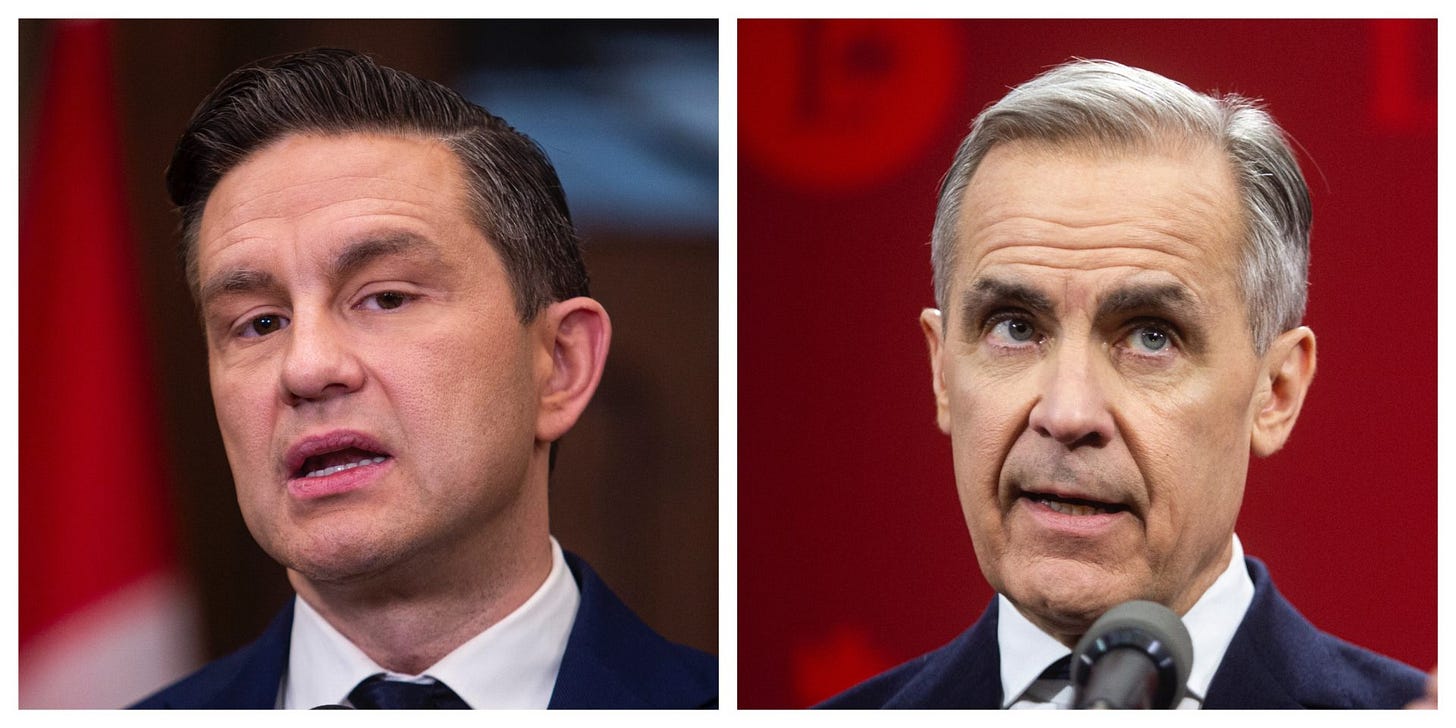
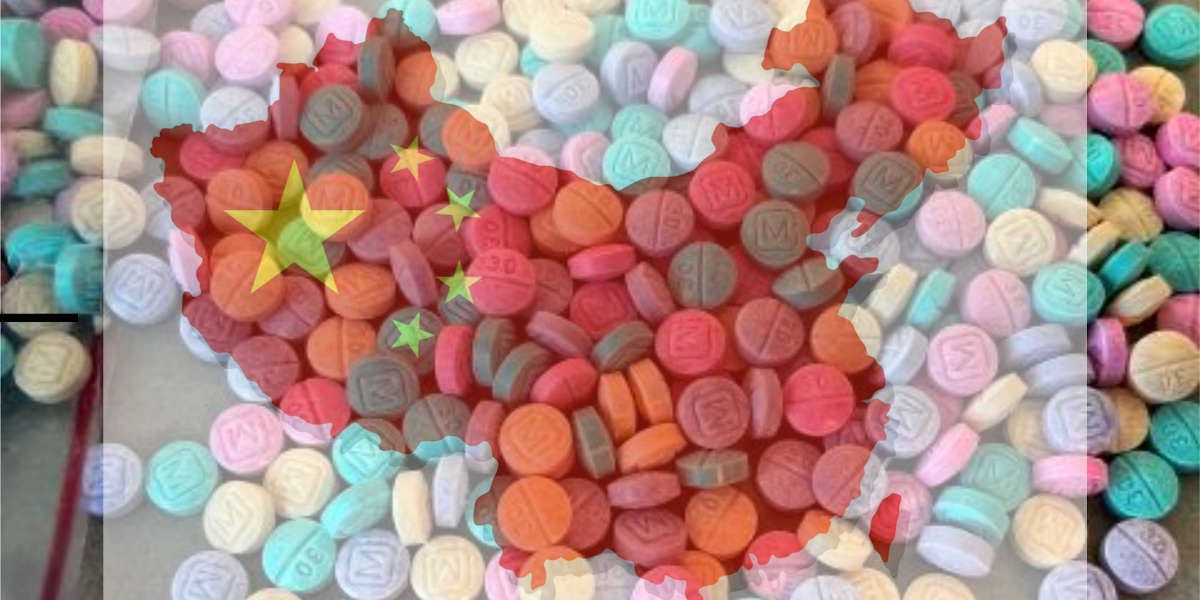

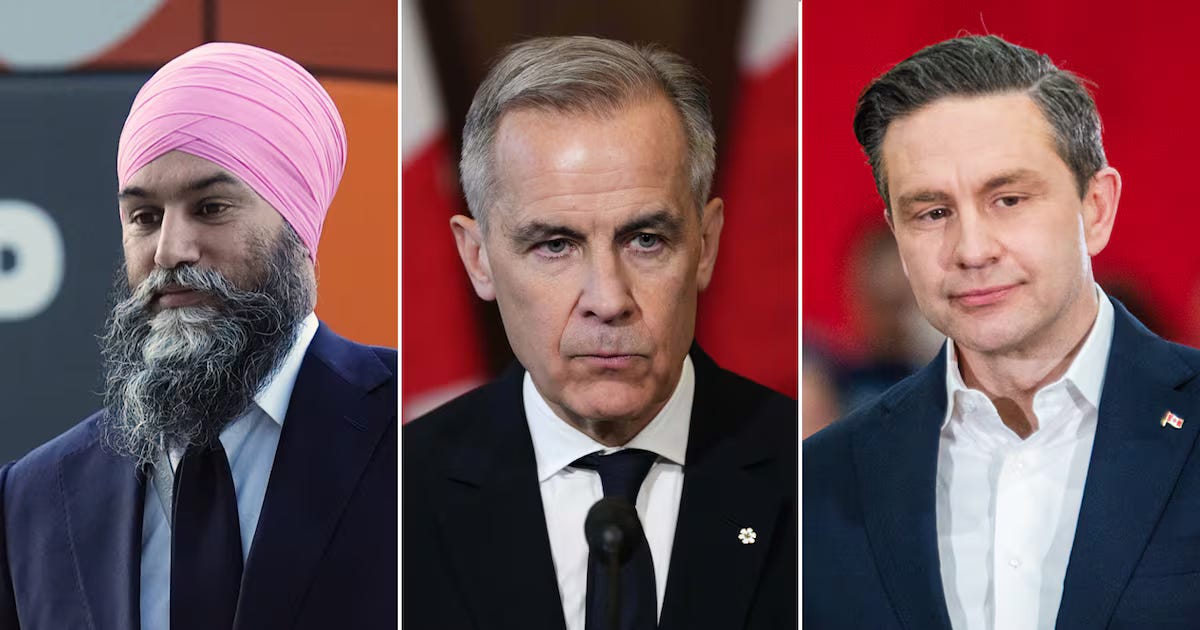
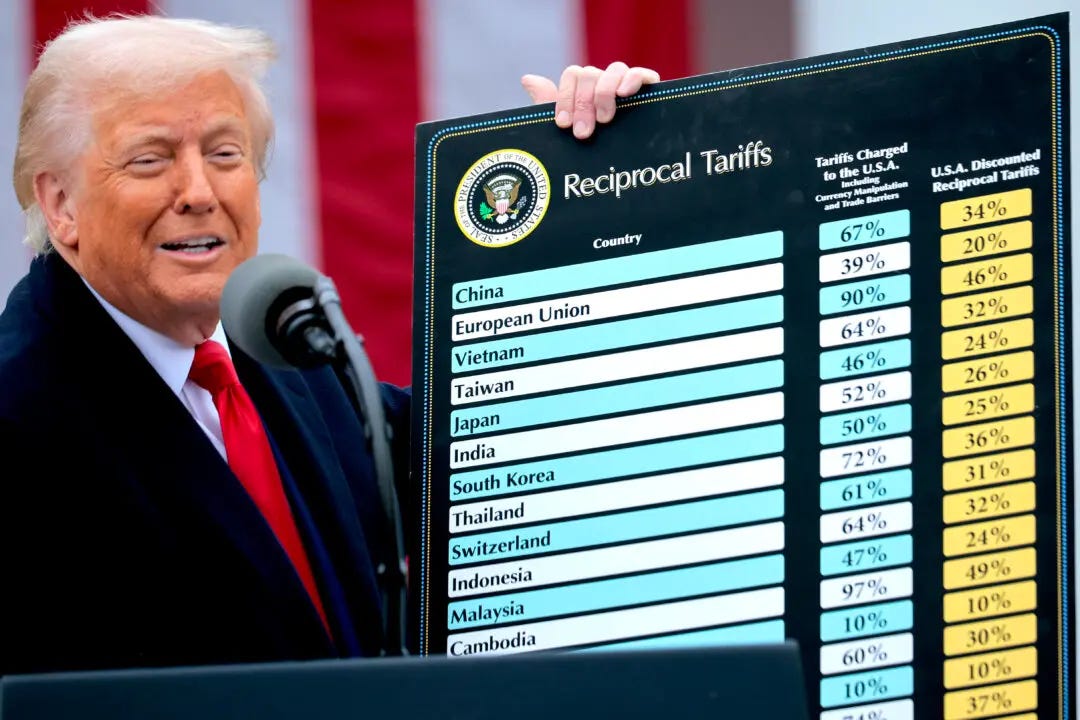

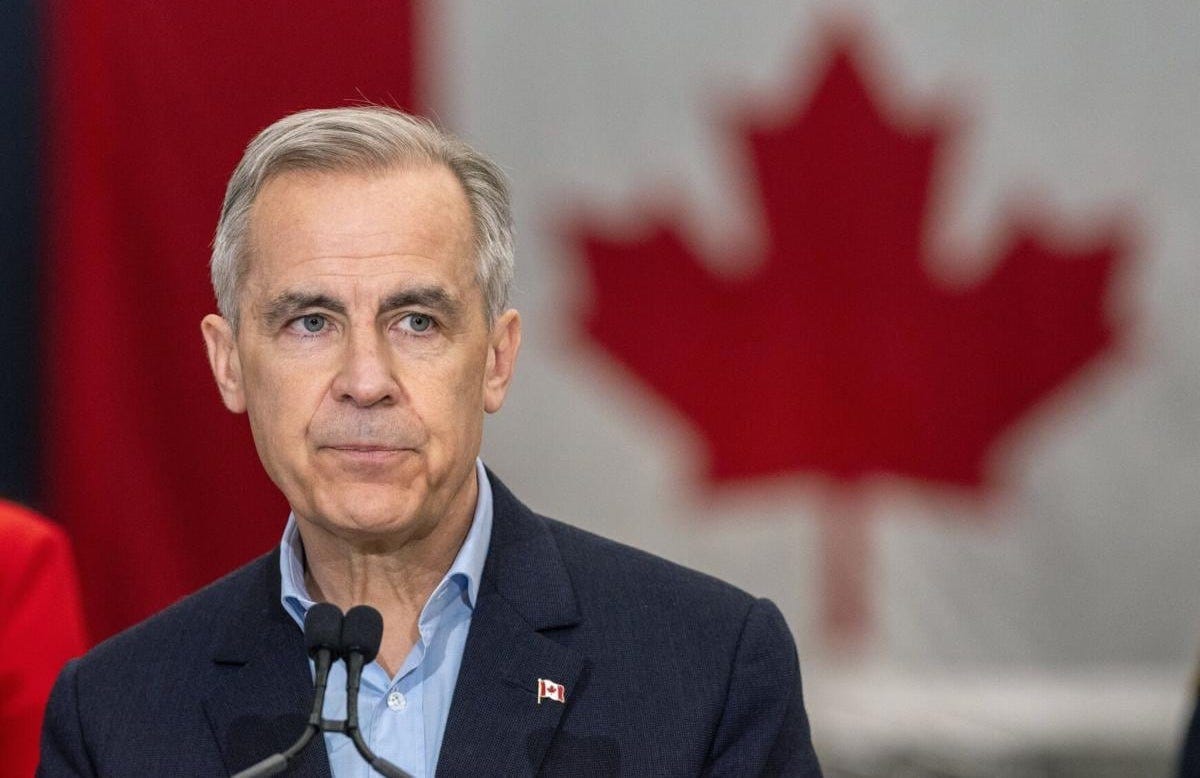





well done! More than well worth the subscription
Awesome writing